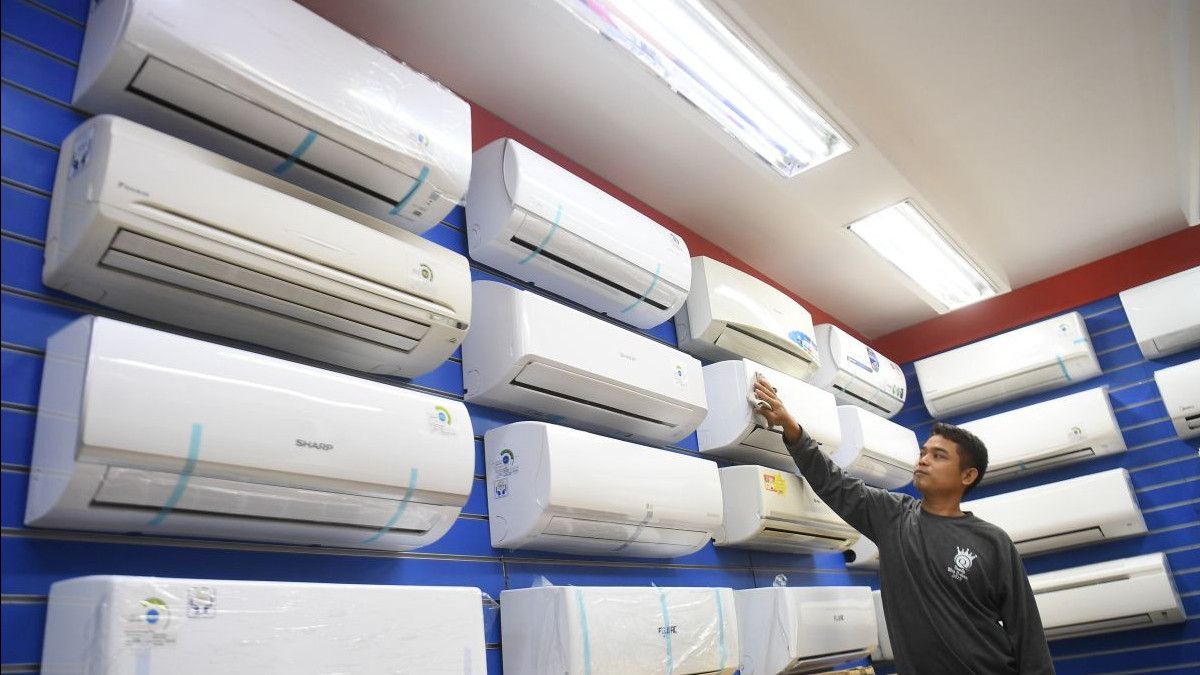JAKARTA - The PRAKARSA Policy Research and Advocacy Institute considers the plan to increase the Value Added Tax (VAT) rate to 12 percent in early 2025 amid the condition of decreasing people's purchasing power is an inappropriate policy.
Although reported by the government to improve the performance of tax revenues.
The PREKARSA researcher Samira Hanim conveyed that the government's efforts to increase VAT in 2022 were actually not able to significantly improve the performance of tax revenues.
"The low tax revenue in Indonesia is not only due to low tariffs, but also due to low compliance and law enforcement," he said in his statement, Monday, November 25.
According to Samira, this is reflected in the increase in VAT rates in 2022.
Tax performance has not improved where the tax ratio to Indonesia's GDP in 2023 actually decreased from 10.39 percent in 2022 to 10.21 percent in 2023.
In fact, the Minister of Finance revealed that Tax Ratio Indonesia was still at the level of 10.02 percent until October 2024.
Indonesia's tax revenue performance is also far behind compared to other developing countries.
In 2022, the average tax ratio in the Southeast Asia region is 14.8 percent and in the Asia Pacific region it is 19.3 percent.
In addition, based on the results of a World Bank study, it shows that the increase in VAT does not have much impact on the increase in state revenues, the increase in VAT rates from 10 percent to 11 percent in April 2022 does not make a significant contribution to tax revenues.
The realization of additional tax revenues from the increase in VAT rates is only 0.3 percent of GDP in 2022 and 0.4 percent of GDP in 2023.
One of the main obstacles in optimizing VAT revenues is the inefficiency in the tax collection system.
Where the C-efficiency ratio for Indonesia's VAT is recorded at only 0.53, lower by 0.17 points compared to the average neighboring countries. The low level of this ratio shows the high potential for lost tax revenue.
Samira assessed that the 12 percent increase in VAT actually violated the principle of tax justice itself.
The imposition of VAT which is objective, does not look at who is imposed, it violates the principle of justice. The rich will issue the same nominal tax as the poor when faced with the purchase of an subjectable goods and services. " he said.
Samira considers that the policies set by the government to improve the performance of this state revenue are increasingly burdensome for the middle and small class.
"The policy to continue the increase in VAT to 12 percent amid the decline in people's purchasing power is not right, uncontrolled deflation can create a deflation circle where consumption decreases, growth weakens, and price pressure gets bigger, the increase in VAT will only worsen this condition," he said.
Samira conveyed that the wealth tax can ensure the principle of justice that the effective tax level of the rich is no lower than that of other groups, while at the same time supporting the function of economic redistribution.
"By completing this step through tightening the rules for tax evasion and strong law enforcement, Indonesia can create a more progressive, fair and inclusive tax system," he said.
Samira said that taxes not only function as a source of state revenue but also a means of redistribution of wealth, the government needs to increase the progressive tax targeting super-rich individuals or Ultra High-Net-Worth Individuals (UHNWI).
This step is in line with the commitment of G20 countries to ensure UHNWI pays taxes fairly and effectively, as stated in the G20 Rio de Janeiro Leaders Declaration.
In Indonesia, the number of UHNWI continues to increase and they even get a lot of tax breaks.
The Wealth Report 2024 projects growth of 34.1 percent, from 1,479 individuals in 2023 to 1,984 individuals in 2028.
This trend is strengthened by a tax structure that is more profitable for income from capital such as capital gains and dividends, which are generally subject to lower tax rates than operating income.
In addition, in Indonesia, income or income tax (Income Tax) is subject to a progressive tax of up to 35 percent, while passive income such as dividends or capital gains is only subject to a tariff of up to 25 percent.
In addition to lower tax rates over passive income dominating the wealth of super-rich individuals, they also take advantage of tax evasion strategies such as delaying the realization of capital gains, not distributing dividends, or using holding companies to divert profits.
Similarly, The PRAKARSA researcher Farhan Medio conveyed the implications, super-rich people pay taxes with a smaller percentage compared to middle and lower income people who rely on active income that continues to be eroded both from VAT and PPh.
SEE ALSO:
According to Farhan, the policy of increasing VAT rates is regressive, where the poorest group must bear a more significant impact than the rich. This policy also has the potential to widen the economic gap.
Wealth tax tax (wealth tax) is an important step to balance tax burdens. The PRAKARSA research estimates that there is an additional potential for state revenue of 78.5 - 155.3 trillion rupiah if a wealth tax is imposed on individuals with a net worth of more than 10 million US dollars (Rp 155 billion) with a progressive rate of 1 percent-4 percent, said Farhan.
The English, Chinese, Japanese, Arabic, and French versions are automatically generated by the AI. So there may still be inaccuracies in translating, please always see Indonesian as our main language. (system supported by DigitalSiber.id)
















